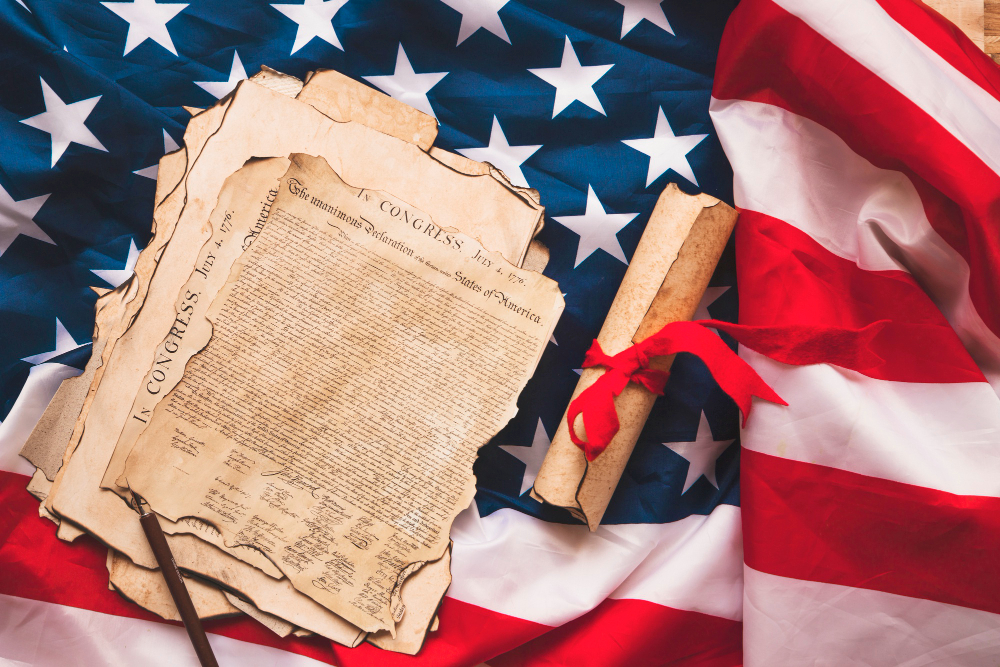This assignment is 3 different essay prompts that are each to be roughly 750 words, or 2-3 pages. The three essays can be written on the same document to be submitted altogether. The courses text is the website digital history, which includes different sections on eras of U.S. history. Each of the three essays need at least one quote from the digital history website, using a section that relates to the essays topic. All 3 prompts are based on the Civil War Era.
American History-Civil War Era Essay Example
Examining Religion and Slavery in the Antebellum South (725 words)
The American Civil War (1861-1865) stands as a pivotal moment in the nation’s history, a bloody conflict rooted in the deep-seated issue of slavery. While the economic and political ramifications of slavery are well documented, the institution’s relationship with religion in the Antebellum South presents a complex and often paradoxical situation. On the surface, many Southern churches actively defended slavery, weaving justifications for the practice into their theological frameworks. However, a closer examination reveals a more nuanced reality, one where religious beliefs also fueled abolitionist sentiments and slave resistance.
One of the primary arguments used by pro-slavery Southerners was the concept of racial hierarchy. As historian Stephanie McCurry explains in a 2020 article for Digital History, many Southern denominations interpreted the Bible to suggest that Africans were descendants of Ham, cursed by God to be servants to the descendants of Japheth (interpreted as white Europeans) (McCurry, 2020). This interpretation provided a seemingly scriptural justification for the subjugation of Black people. Additionally, Southern churches frequently emphasized obedience to authority figures, using scriptures like Ephesians 6:5 (“Slaves, be obedient to those who are your earthly masters, with fear and trembling, in sincerity of heart, as you would be to Christ”) to discourage slave rebellions.
However, the same religious fervor that fueled pro-slavery arguments also fueled abolitionist sentiments within some sects of Southern Christianity. Notably, Quaker and Methodist denominations, with their emphasis on social justice and equality, became centers for anti-slavery activism. Quakers, long known for their pacifism, actively participated in the Underground Railroad, a network of safe houses and routes that helped enslaved people escape to freedom. Similarly, Methodist preachers like John Rankin denounced slavery from the pulpit, arguing that it contradicted the fundamental Christian principles of love and compassion. As quoted on Digital History ([Digital History], n.d.), Rankin, in his 1837 sermon “Let My People Go,” passionately declared, “No individual has the right to enslave another,” highlighting the growing dissent within Southern religious circles.
Religion also played a significant role in shaping slave resistance movements. While many slaves were forced to outwardly conform to the religious teachings of their owners, they often drew upon their own interpretations of scripture to find solace and justification for their desire for freedom. Historian Albert J. Raboteau, in his 2004 book “Slave Religion: The Invisible Institution in the Antebellum South,” argues that enslaved people often adapted Christian concepts of liberation and redemption to their own struggle for freedom (Raboteau, 2004). Spirituals, a form of religious music that emerged from the slave experience, became coded messages of hope and resistance. Songs like “Wade in the Water” and “Go Down Moses” contained hidden meanings that encouraged slaves to persevere in their pursuit of freedom.
In conclusion, the relationship between religion and slavery in the Antebellum South was far from monolithic. While many Southern churches provided a theological justification for slavery, others emerged as centers of abolitionist thought. Religion also played a crucial role in shaping slave resistance, with enslaved people finding solace and inspiration in their own interpretations of scripture. The Civil War may have been fought over economic and political issues, but the underlying tensions between religious beliefs and the practice of slavery exposed the profound contradictions at the heart of American society. Understanding this intricate relationship allows us to gain a deeper understanding of the complex forces that shaped the nation’s most defining conflict.

